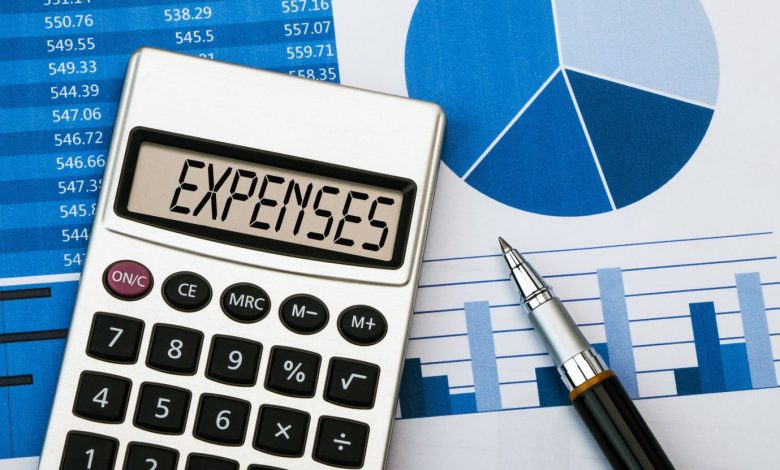8 Tips for Paying Unexpected Expenses

Have you ever gotten a bill that you never thought you’d encounter? Do you ever have to deal with paying for an unexpected expense?
Every now and then, we have to face an unexpected bill that comes out of nowhere. It could be anything, such as car repairs, reparations on your home, or medical interventions.
Unexpected expenses can cause us stress and anxiety. So how can you deal with these situations to ensure stress-free living? Keep reading to learn how to deal with these in a way that won’t cause you financial stress and anxiety.
1. Setting Aside an Emergency Fund
Paying unexpected expenses can be stressful, but setting aside an emergency fund can help. Start by understanding what an emergency fund is and how it works.
An emergency fund is an account that is set aside for unexpected costs like home and car repairs, medical bills, and emergency travel. Once you understand the purpose of an emergency fund, it is important to determine how much to save.
When creating your fund, start small and slowly increase your savings as your budget allows.
2. Utilize Credit Cards Wisely
Paying unexpected expenses can be a challenge, but utilizing credit cards wisely can help. Start by dividing your expenses into categories such as food, entertainment, and bills. Once you have a list, you can then look for ways to lower costs for each category.
Once you’ve identified areas where you can save money, use your credit card to cover the additional expenses. This method helps you stay proactively organized and avoid racking up high-interest rates.
Additionally, always be mindful of interest rates and rewards associated with each credit card.
Make sure to pay off your balance as soon as possible to avoid any additional fees. Be sure to only use credit cards for what you can afford. Utilizing credit cards wisely is key to managing unexpected expenses.
3. Cut Unnecessary Expenditures
When faced with unexpected expenses, one of the best tips to pay for them is to first cut unnecessary expenditures. This means going through your monthly and weekly budgets and figuring out what you can cut back on and eliminate from your spending.
It may be something as small as coffee on the way to work or larger such as a monthly streaming service. Anything that does not bring the necessary value to your life should be cut for the moment.
You can also look for items you can cut back on temporarily, such as:
- clothing
- entertainment
- travel
- food
These cuts can help contribute to or cover the cost of your unexpected expense. Making the sacrifice of doing this can help you pay off and get back on your financial feet in the long run.
4. Consider a Short-Term Loan
For those dealing with unexpected expenses, consider short-term loans and payday loans as possible solutions. Short-term loans can provide the funds needed to cover an unanticipated expense.
When looking into short-term loans, make sure you are well-informed of all the associated fees, repayment timelines, and interest rates. Also, it is important to consider the full cost of the loan and read all loan documents in full.
Knowing the terms and conditions of the loan will help ensure you have a manageable and responsible loan. It is important to consider your budget and the amount that can be paid back on time before signing the loan agreement.
If it does not fit in your budget to pay back the loan within the set timeframe, then it is best to not take the loan.
5. Tap Into Investments
Tap into investments as a potential source of income to cover unexpected expenses. Depending on your investment type, you may be able to withdraw funds from a retirement account or use the capital from an investment portfolio to pay those bills.
Do so carefully, however, as the tax implications or fees associated with withdrawing from certain accounts, such as a retirement account, can be severe. Consider all potential repercussions, and your overall financial situation, when selecting this option.
6. Utilize Tax Refunds
Utilizing tax refunds to pay off unexpected expenses is a great way to get ahead of the game financially. This tip is especially beneficial if a taxpayer is expecting a larger-than-normal refund.
Before a taxpayer receives their refund, it is important to set aside a portion of the extra money specifically for unexpected expenses so that there are no surprises later on.
It is also a good idea to divvy up the funds into smaller chunks allocated to each expected expense; this will help to ensure no surprises or debt accruals when it comes time to pay those unexpected bills.
7. Take On Temporary Employment
When faced with unexpected expenses, taking on temporary employment can be a great way to bridge the financial gap. To maximize potential income, look for special skills or qualifications that will create more value for employers.
For example, consider offering freelance services, such as:
- web design
- graphics
- writing and virtual assistance
Networking and job boards, such as Upwork, are good sources for finding temporary jobs that match your skills and requirements. Additionally, investigate the possibility of side gigs, such as becoming a rideshare driver or grocery delivery person.
Taking on extra employment can be a great way to earn additional income to cover unexpected expenses. The key is to prepare and manage your time and budget wisely to achieve successful outcomes in the long run.
8. Leverage Crowdfunding Platforms
If you have unexpected expenses, such as an emergency medical or dental bill or car repair, leverage crowdfunding platforms as an efficient way to cover these costs.
Ask your family and friends to contribute to your campaign, and then reach out to strangers who may be willing to support your cause.
Be sure to use an established platform with a reliable payment system to ensure your donations are secure and processed correctly. Furthermore, craft a compelling story to connect with potential donors on an emotional level.
Utilizing a combination of personal networks, social media, and other online channels, you will be able to create a successful crowdfunding campaign.
Pay Your Unexpected Expenses Now
You can now read through some great tips for being prepared for unexpected expenses. Staying informed about your spending and budgeting, planning ahead, and utilizing a savings account are all great ways to be ready for the unexpected.
Start taking steps today to become more financially prepared, so you can confidently handle any unexpected expenses.
Did you find this article helpful? Check out the rest of our blog.



